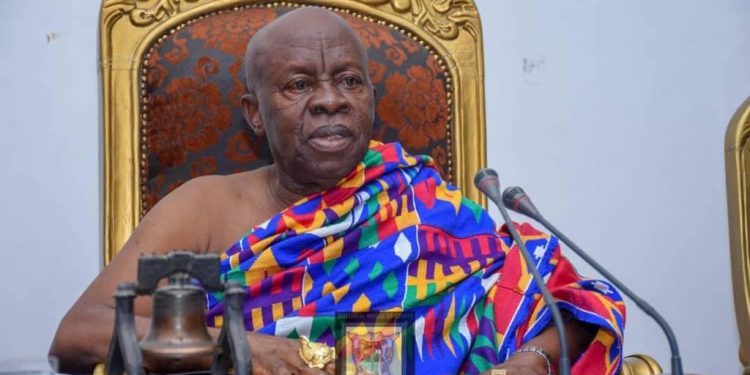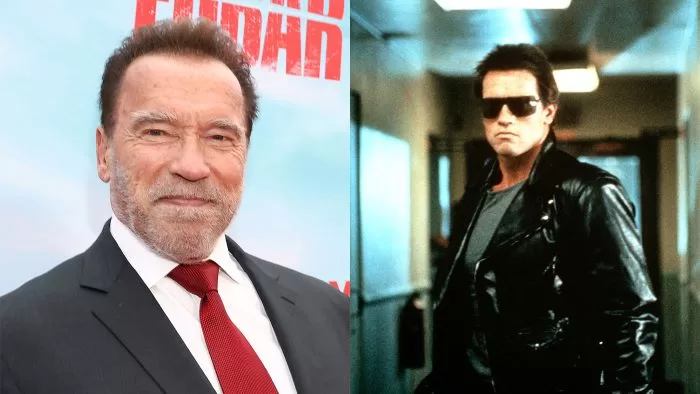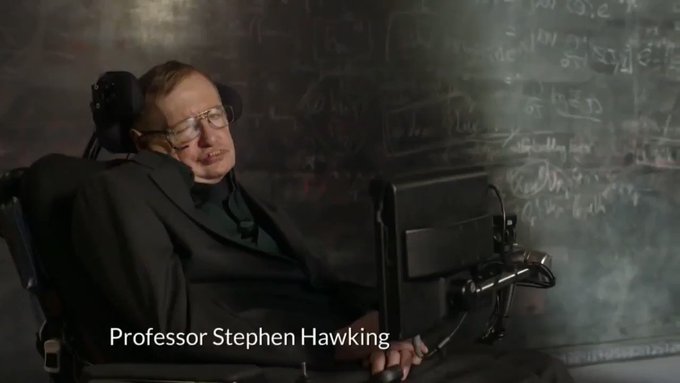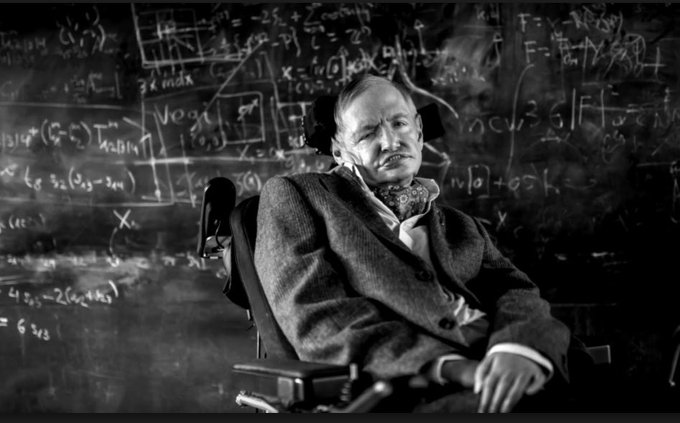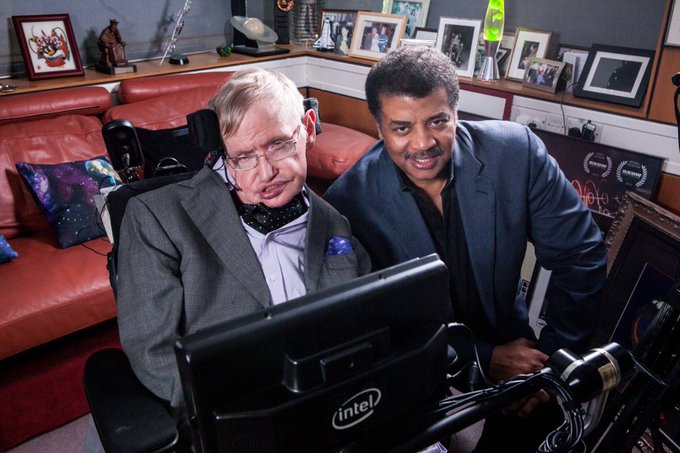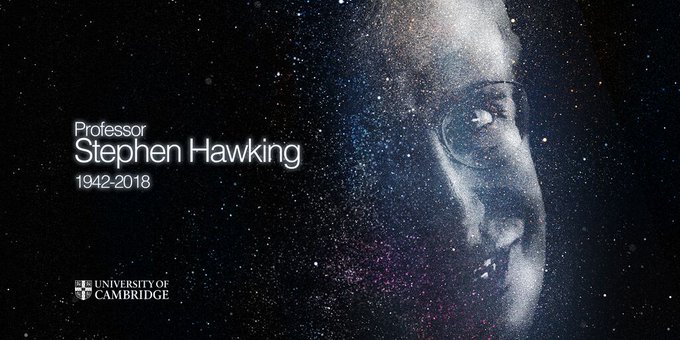Stephen Hawking[/caption]
World renowned physicist Stephen Hawking has died at the age of 76.
He died peacefully at his home in Cambridge in the early hours of Wednesday, his family said. The British scientist was famed for his work with black holes and relativity, and wrote several popular science books including A Brief History of Time. At the age of 22 Prof Hawking was given only a few years to live after being diagnosed with a rare form of motor neurone disease. The illness left him in a wheelchair and largely unable to speak except through a voice synthesiser.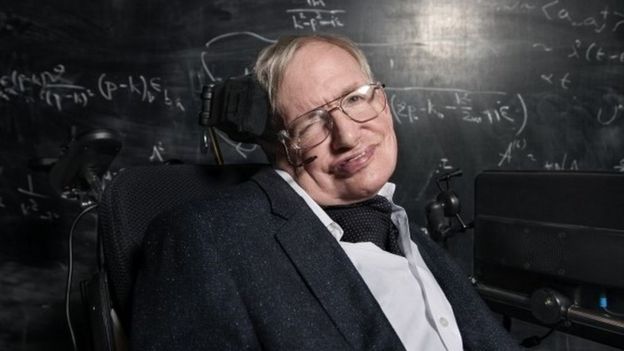 BBC/RICHARD ANSETT[/caption]
BBC/RICHARD ANSETT[/caption]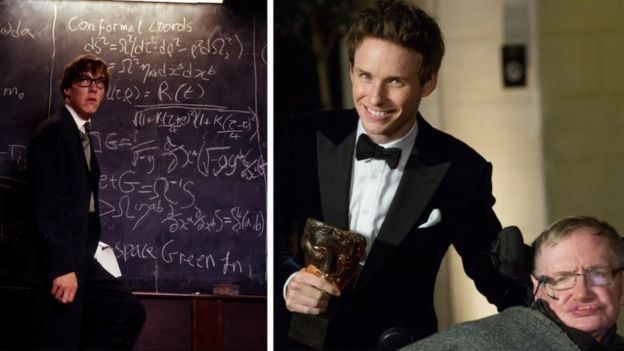 Stephen Hawking was portrayed on TV and film by Benedict Cumberbatch and Eddie Redmayne photo: BBC/PA[/caption]
Stephen Hawking was portrayed on TV and film by Benedict Cumberbatch and Eddie Redmayne photo: BBC/PA[/caption]Factfile: Stephen Hawking
- Born 8 January 1942 in Oxford, England
- Earned place at Oxford University to read natural science in 1959, before studying for his PhD at Cambridge
- By 1963, was diagnosed with motor neurone disease and given two years to live
- Outlined his theory that black holes emit “Hawking radiation” in 1974
- In 1979, he became the Lucasian Professor of Mathematics at the Cambridge – a post once held by Sir Isaac Newton
- Published his book A Brief History of Time in 1988, which has sold more than 10 million copies
- In the late 1990s, he was reportedly offered a knighthood, but 10 years later revealed he had turned it down over issues with the government’s funding for science
- His life story was the subject of the 2014 film The Theory of Everything, starring Eddie Redmayne
Tim Berners-Lee, inventor of the web, was one of the first people to pay tribute to Prof Hawking. “We have lost a colossal mind and a wonderful spirit. Rest in peace, Stephen Hawking,” he said. The vice chancellor of the University of Cambridge – where Prof Hawking had studied and worked – Professor Stephen Toope, said he was a “unique individual” who would be remembered with “warmth and affection”. He added: “His exceptional contributions to scientific knowledge and the popularisation of science and mathematics have left an indelible legacy. His character was an inspiration to millions.” Prof James Hartle, who worked with him to create the Hartle-Hawking wavefunction to explain the Big Bang, said Prof Hawking had a “unique” ability to “see through all the clutter in physics” and get to the point. He told BBC Radio Four’s Today programme: “My memory of him would be… first our work together as scientists and, second, as a human being whose whole story is a triumph over adversity [and] who inspired a lot of people, including me.” He told Today: “Whenever I did something, he wanted to do it better. “The one thing he was jealous of was I got the Nobel Prize before he did.” Prof Lord Martin Rees, the Astronomer Royal, who was at university with Prof Hawking when he was diagnosed, said his friend had “amazing willpower and determination”. “Even mere survival would have been a medical marvel, but of course he didn’t just survive,” he said. “He became one of the most famous scientists in the world.” Prof Brian Cox, science presenter and professor of physics at the University of Manchester, described him as “one of the greats”. “There are physicists that in 1,000 years’ time they will still be talking about Hawking radiation, they will be using his fundamental results on black holes. “There are at least three areas where his work will be remembered as long as there are cosmologists and that is the best you can hope for as a scientist.” The comedian and presenter of the BBC’s Stargazing Live Dara O’Briain said the scientist had an “immeasurable life” and “one of the few people I would call a hero of mine”. He added: “His work elevated us to the extra-ordinary; his life pushed down a terrible, limiting disease so that he could enjoy the full joy of the ordinary. In both, he was a triumph of what we, as humans, can achieve.” British astronaut Tim Peake said Prof Hawking “inspired generations to look beyond our own blue planet and expand our understanding of the universe”. He added: “His personality and genius will be sorely missed. My thoughts are with his family. Defence Minister Tobias Ellwood said Prof Hawking was “an inspiration to us all, whatever our station in life, to reach for the stars”. He tweeted: “RIP Sir. You epitomised true courage over adversity as you explained the wonders of the universe to the world. Your achievements symbolise the pwr (sic) of the human mind.” Local government minister Sajid Javid said: “One of most inspirational people throughout my life. A brief history on earth, an eternity in the stars.” Labour’s Chuka Umunna tweeted: “What a wonderful and extraordinary man. A huge loss for the world, not just our country. Thinking of his family today.” Apple’s co-founder Steve Wozniak said: “Stephen Hawking’s integrity and scientific dedication placed him above pure brilliance,” Satya Nadella, Microsoft chief executive, said: “We lost a great one today. Stephen Hawking will be remembered for his incredible contributions to science – making complex theories and concepts more accessible to the masses. “He’ll also be remembered for his spirit and unbounded pursuit to gain a complete understanding of the universe, despite the obstacles he faced.”
 Stephen Hawking arrives on the red carpet with former wife Jane Hawking (l) and daughter Lucy Hawking (r). Photo: AFP/GETTY IMAGES[/caption]
Image copyright
Stephen Hawking arrives on the red carpet with former wife Jane Hawking (l) and daughter Lucy Hawking (r). Photo: AFP/GETTY IMAGES[/caption]
Image copyright





